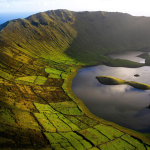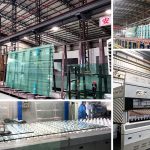Nine ‘Geniotypes’ to Find Your Natural Talent
For Tony Estruch, author and entrepreneur, we are all born with a set of creative abilities and an innate talent. The problem arises when the educational system stifles creativity and prevents us from finding our purpose in life.
Tony Estruch, author and founder of the Geniotype Foundation.
“Complete the geniotype map, Izán, and you’ll understand that the world isn’t about what you need, but about what you can offer. Only from self-love can you give something of value to others.” In Why Was I Born for This? (published by Urano), readers follow the journey of Izán, a 14-year-old boy who leaves the safety of his home, driven by the need to discover his life’s purpose. “We all have a natural talent, something we are innately good at. The problem is that this talent is hidden beneath layers and layers of beliefs from the educational system, social environment, and family… which convince you that what is naturally a part of you doesn’t count,” explains Estruch. “It seems like what matters is that you can survive and, when you enter the labor market, know how to benefit the person who hires you,” he adds.
For this researcher, entrepreneur, and musician by training, the search for purpose became a vital need when, with only 30 euros in his pocket and having lost everything, he had to return to his mother’s home. And there, drawing from his own failure, he began an 11-year journey dedicated to studying the importance of what he would call the “geniotype,” the innate and creative neural abilities of the brain, which predispose everyone to a particular talent that allows people to be happy by giving their best in the process.
“There’s a huge dogma I often hear. They tell me: ‘Tony, if I do what makes me happy, my life is going to go badly.’ And I reply: ‘Of course, it makes much more sense to do what doesn’t make you happy because then your life will go well…'”
Whether due to fear, low self-esteem, or other reasons, the truth is that many people fail to realize their talent and purpose in life. “We were recently at the University of Valladolid, giving a lecture to about 30 teachers. When we asked: ‘Who here knows their talent?’, only two people raised their hands.” To reinforce the importance of this, Estruch recalls a famous NASA study that analyzed people’s creative genius and how it was affected by their educational journey. After studying and following 1,600 children, the results were surprising: initially, 98% of children between the ages of 3 and 5 were categorized as creative geniuses, but the percentage plummeted to 30% by the age of 10 and only 12% by 15. Compared to the adult population, only 2% retained that level of creativity.
Is it possible that the educational system, while teaching, negatively impacts our curiosity, creativity, and ability to imagine? For Estruch, there is no doubt: “I call this educational castration. If, etymologically, the word ‘educate’ means ‘to accompany someone to bring out the best in themselves,’ in today’s system, it has transformed into ‘helping them become like everyone else.'” That’s why, from the Geniotype Foundation, which began in 2023, they try to offer sessions and workshops to schools, companies, and organizations to help students and professionals discover their talent, in order to address issues such as early school dropout or job dissatisfaction, and even promote the development of transformational leadership skills. “My wound is in education. I play seven instruments, but I was a disaster in school; I didn’t understand anything, but I wasn’t aware of what was happening,” recalls Estruch.
“People, in their element, give the best of themselves to society,” adds Iban Galletebeitia, personal coach of the Geniotype Foundation. “That’s why it’s necessary to move toward a system capable of accompanying people in the process of identifying, developing, and nurturing their innate creative abilities. Only in this way will we obtain better results than those we’ve had until now.”








